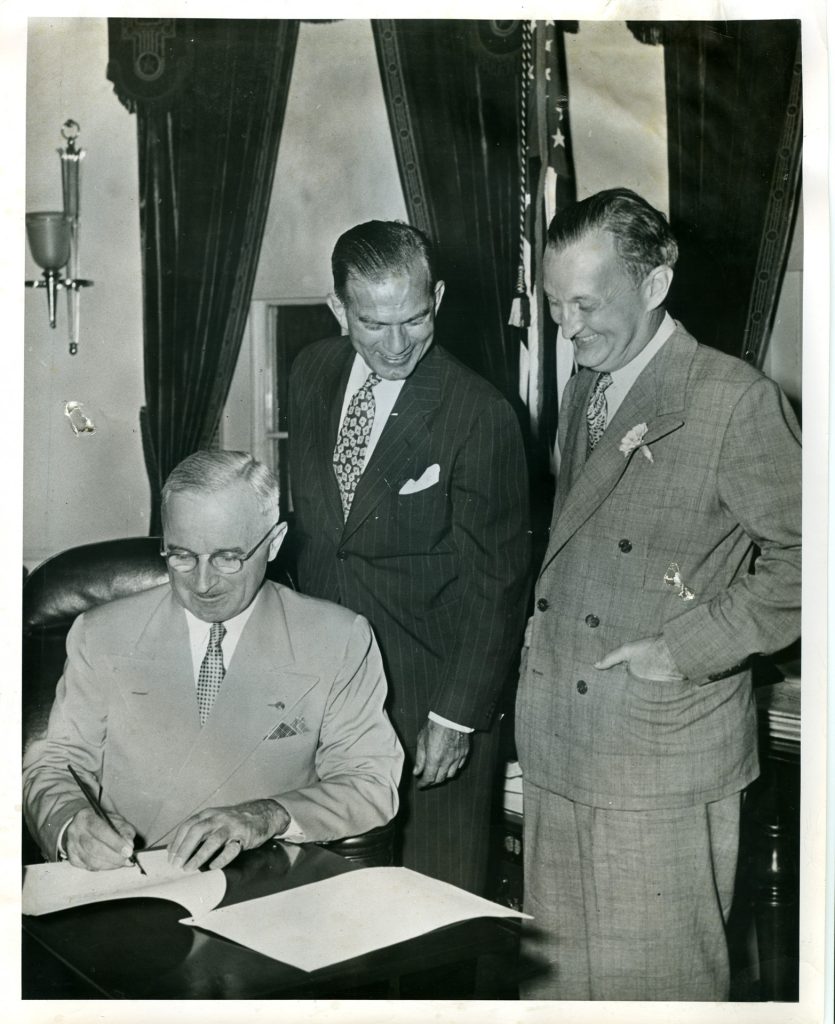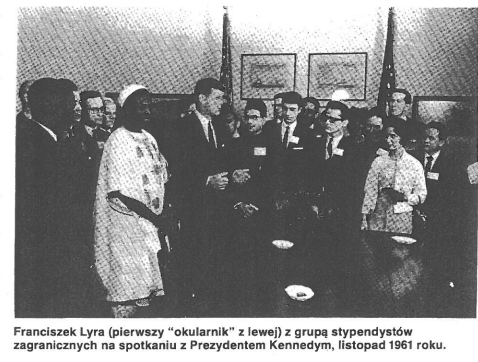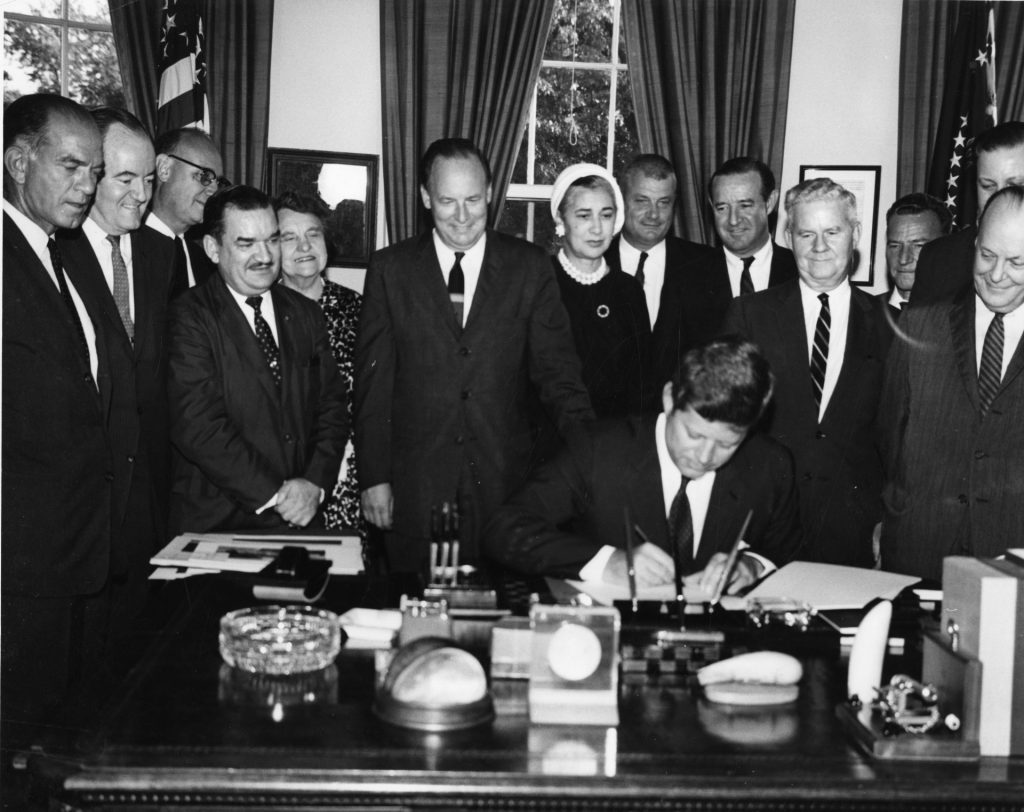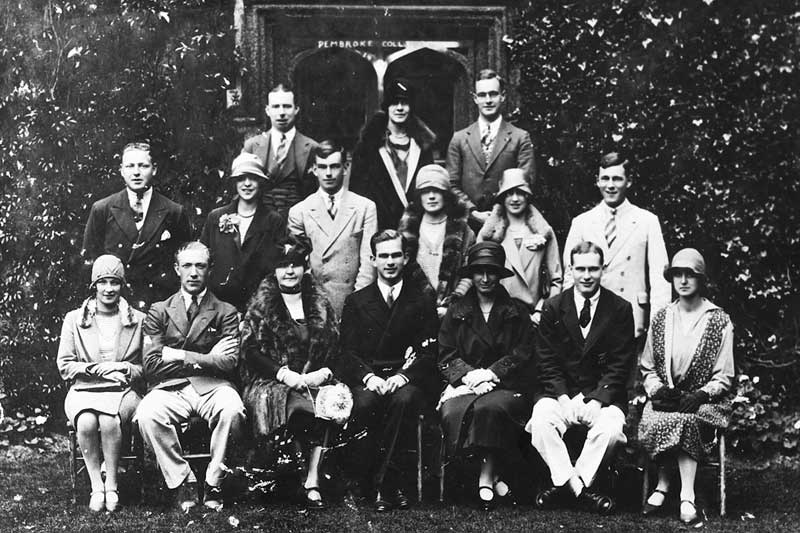“A modest program with an immodest aim” is how Senator J. William Fulbright, the founder and initiator of the Fulbright Program described it. After the end of World War II, Fulbright was determined to take action to prevent further major international conflicts. He was convinced that scientists and leaders of academia around the world would play a key role in the process of rebuilding trust between nations.
The Senator created a well-thought-out, long-term strategy for implementing this idea. On his initiative, the largest scholarship program of international scientific exchange ever, between the USA and other countries, was established. All former, present and future scholars have accomplished Fulbright’s great vision of building peace and international relations through the exchange of knowledge and the integration of scientific and cultural communities around the world.

Beliefs behind the Program
J. William Fulbright’s conviction about the value of foreign education and exploration of other cultures arose from his personal experiences. In 1925, after graduating from college, Fulbright went to Europe to study at Oxford University as a Rhodes Scholar. During the scholarship he traveled around Europe and made new contacts. After returning to the United States, first as an academic and university president, later as the Junior Senator from Arkansas, he showed great commitment to public life.
Fulbright saw nationalism and xenophobia as the causes of World War II and of the great tragedies of that era – the Holocaust and Hiroshima. According to the Senator, these resulted from a lack of knowledge and ignorance of other nations and cultures. The fear that postwar distrust and anxiety would, for a long time, take root in the consciousness of future generations, motivated him to create an innovative educational program. Scientific exchange was to build empathy and relationships sufficiently strong to prevent another international, mass scale conflict.

The inauguration of the Fulbright Program
In September 1945, Senator J. William Fulbright of Arkansas introduced a bill in Congress (Public Law 584 known as the Fulbright Act) to redistribute the profit from selling surplus U.S. government war property into financing an international exchange education and cultural program. With the approval of the 79th Congress, President Harry Truman signed the bill into law on August 1, 1946. In the isolationist period of U.S. history, the Fulbright Act was an important step to establish a precedent where U.S. government commits globally to long-term programs.
China, Burma, the Philippines and Greece were the first countries to join the Program. The first round of fellowship participants: 47 Americans and 36 citizens of aforementioned countries embarked on their journey as exchange scholars in the Fall of 1948. In the next twelve months, the Program has grown to include many countries of Western Europe and their colonial possessions (i.e. Great Britain, New Zealand, Belgium, Luxembourg, the Netherlands, France, Italy and Norway), and the number of participants has reached 823 on the United States’ side and 967 on the other countries’ side.
Subsequent acts of Congress, including the Fulbright-Hays Act (Mutual Education and Cultural Exchange Act) of 1961, extended the initial law by broadening the scope of the programs, and authorized the Fulbright Commission’s financing from additional sources. They also introduced J. William Fulbright Foreign Scholarship Board (FFSB), a 12-member council mandated by Congress to oversee the working of the Program worldwide together with independent boards of directors appointed in respective participating countries. The excellence of the Fulbright Program has largely depended on the high standards set by the Board, such as the quality and merit selection, open competition, peer review and binational agreements.
By the twenty-first century, multiple participating governments, and non-governmental agencies and organizations have contributed to the development of the Program. As of today, the Fulbright Program has been recognized in over 160 countries worldwide, with approximately 380.000 “Fulbrighters” to receive grants since the Program’s inception. Among its alumni, 59 have been awarded the Nobel Prize, 84 have received the Pulitzer Prize, 72 have been MacArthur Fellows, and 37 have served as heads of state or government. As such, the Fulbright Program is one of the most prestigious educational exchange programs in the world.

The Fulbright Program in Poland
Poland was the first country in Eastern Europe to join the Fulbright Program.
In 1959, Franciszek Lyra, the University of Warsaw English Department alumnus was the first Polish grantee to participate in the Program. He received a one-year fellowship to study linguistics at the University of Indiana, Bloomington. Several years after his return to Poland, Lyra utilized the knowledge and skills he had developed during his stay in the United States to help establish the English department at Maria Curie-Skłodowska University in Lublin.
In 1961, the first American grantee visited Poland. Prof. Daniel Aaron from Harvard University spent a year in the nation’s capital as a visiting lecturer at the University of Warsaw.

Polish-U.S. Fulbright Commission
During the first 30 years of the Fulbright Program in Poland, the US Embassy and the Ministry of Education were responsible for organizational and administrative aspects of the exchange fellowship. On March 22, 1990 an institution dedicated to administering the Program and promoting Fulbright’s idea in Poland was established, namely the Office for Polish-American Scientific Exchange. The decision to establish the Fulbright office in Warsaw to administer all aspects of the Fulbright Program in Poland preceded by two years the signing of educational agreement between Poland and the United States.
Currently, under the name of the Polish-U.S. Fulbright Commission, our team steadfastly implements the ideological and strategic goals of the Program that have remained unchanged for the past 70 years. The incredible faith of William Fulbright in the possibility of giving history a new, positive course, and his clear plan of how to carry this out, continues to inspire all staff and advocates of the Commission to this day.






